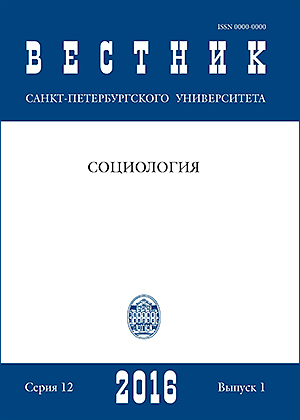RUSSIAN IDENTITY OF THE RUSSIAN NORTH: HISTORY AND MODERNITY PROBLEM
DOI:
https://doi.org/10.21638/11701/spbu12.2016.112Abstract
This article examines the demographic, social and ethno-cultural processes in the European/Russian North. Analyzing the content of the notion “Russian North” and historical reasons that led to its emergence, it is shown that the centuries-old process of colonization of the Russian North in recent decades has not only been completed, but the opposite process of decolonization has already begun. Along with the loss of cultural attractiveness, the North of European Russia has also lost its social attractiveness as a favorable job market that can ensure personal well-being and as a promising region where social conditions can promote successful personal careers for its inhabitants. In the region there are increased social and cultural risks that could lead to a profound imbalance in the region’s social development. It is obvious that within the overall Arctic strategy a macro-regional strategy is needed that can take full account of the historical, cultural and social resources of the Russian North as well as the peculiarities of the social and cultural processes taking place there. Refs 28.
Keywords:
the Russian North, European North of Russia, decolonization, ethnicity, migration, social moods, social risks
Downloads
References
References
Downloads
Published
How to Cite
Issue
Section
License
Articles of "Vestnik of Saint Petersburg University. Sociology" are open access distributed under the terms of the License Agreement with Saint Petersburg State University, which permits to the authors unrestricted distribution and self-archiving free of charge.




